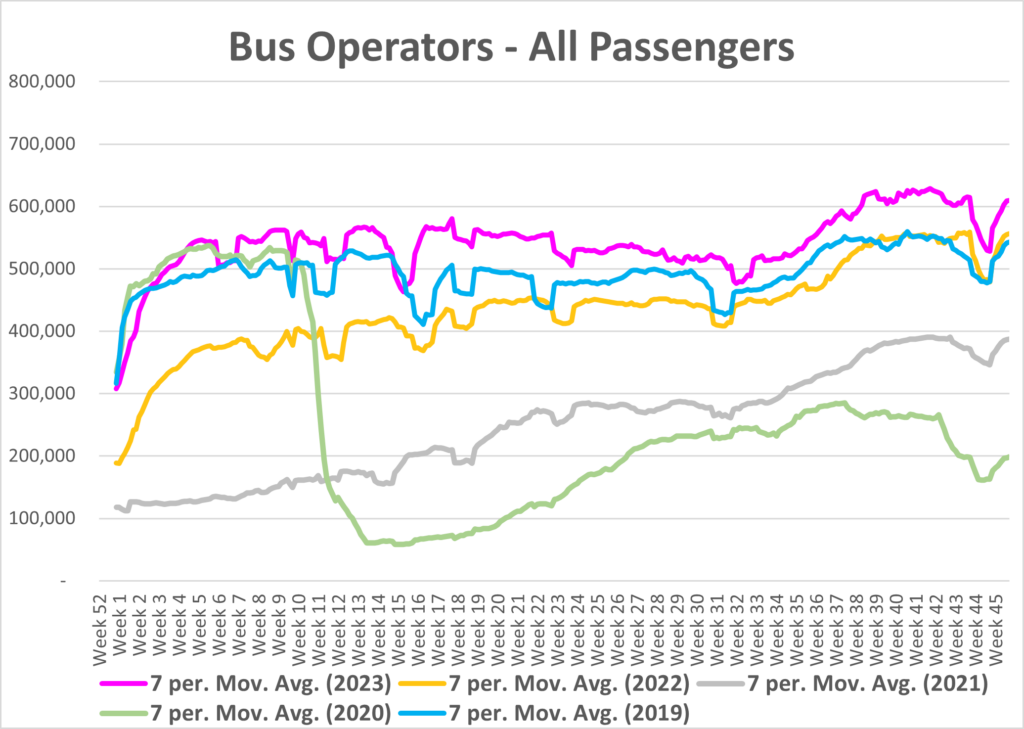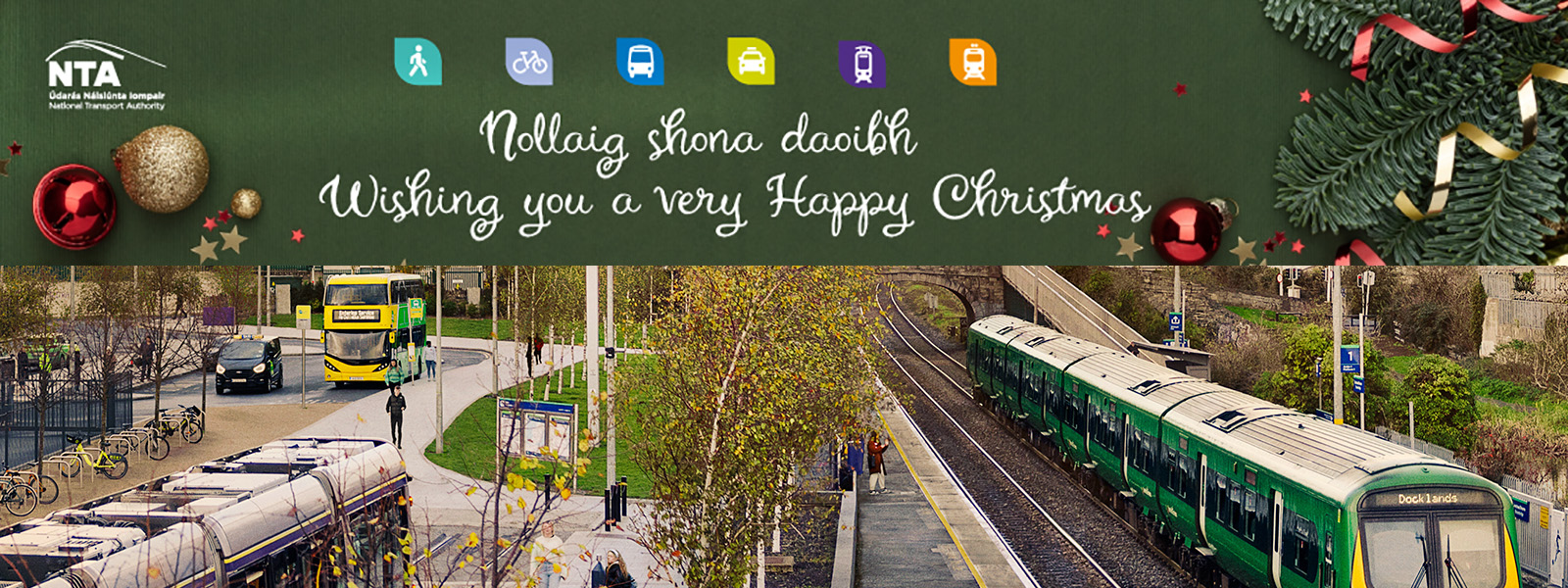Chairperson and members of the committee, thank you for the invitation to attend. I understand that the Committee wishes to focus again upon the provision of bus services in Dublin, Wicklow, Meath and Kildare. To assist me in dealing with your subsequent questions I am joined by Jeremy Ryan, Director of Public Transport Services with the Authority.
Responsibilities of the Authority with regard to public bus services provision
The Authority is responsible for the provision of an integrated, accessible public transport system. BusConnects and Connecting Ireland are key public transport programmes where the Authority in association with transport operators and local authorities have planned new and improved networks to allow the continued economic and social development of our cities, towns and rural areas. The services are planned by the Authority to allow residents and visitors the choice of sustainable, low carbon emission transport for some or all of their journeys.
Public Transport Contracts
The Authority is responsible for securing the provision of public bus services through two specified mechanisms:
- public service contracts with operators such as Dublin Bus, Bus Éireann and GoAhead Ireland, where services would not otherwise be provided on a commercial basis, and
- the licensing of public bus services, which are operated on a commercial basis.
Dublin Bus and GoAhead Ireland are contracted by the Authority to deliver bus services in Dublin, Bus Éireann from Meath and Wicklow into Dublin and GoAhead Ireland from Kildare into Dublin city.
The NTA contracts with all three operators are available on the NTA website. Along with a number of customer service metrics, the key performance metrics for both operators are as follows:
- lost kilometres which is a measure of the contracted service kilometres that were not operated
- punctuality is measured for each stop along the route and is measured differently for low frequency routes compared to high frequency routes.
Low frequency bus routes are defined as services that operate less than 5 times per hour on a weekday, outside of peak periods.
These metrics, along with a number of other customer-focussed metrics are used by the Authority to measure operator performance. The reports on transport operator performances are regularly published on our website and an annual performance report is produced, the latest being available for 2022. The NTA does not pay for any services that failed to operate where the failure was in the control of the operator. There are also penalties imposed on operators if the punctuality target for the service or contract is not met. Similarly failure to meet the fare collection targets can result in a financial penalty. In contrast, if the operator exceeds any targets they are paid a bonus.
Last year we reported to the Committee that all operators were facing difficulties in recruiting and retaining drivers in their companies which had resulted in a higher than normal cancellation of services. All operators have taken a number of steps to address this critical shortage including running recruitment campaigns and securing improved throughput of driver testing. The NTA delayed the introduction of phases of the Bus Connects Network Redesign so that driver recruitment could recover.
Thanks to the efforts of all operators, driver recruitment has increased and we have seen a much improved service delivery with the level of cancellations in Dublin city significantly reduced.
A similar crisis has now arisen in the recruitment and retention of mechanics to service the bus fleet. Mechanic shortages has resulted in the cancellation of some services in Meath in recent weeks and is impacting other operators also. The Authority is assured that all operators are making every effort that they can to recruit and retain more mechanics in a tight and competitive employment market.
Despite the challenges being faced by operators, public transport across Ireland is carrying more passengers than ever before in 2023. Dublin’s bus services are carrying 10% more passengers than in 2019 which was the previous record for passenger numbers. Outside Dublin, passenger numbers have grown between 20 to 30% higher than 2019 pre-Covid figures. Most developed economies have still not seen a return to 2019 levels of public transport usage.
While it is hard to determine the exact reasons for the phenomenal recovery in passenger numbers in Ireland, the combination of the following are key reasons:
- A 20% fare reduction introduced and funded by government as a cost of living measure across all subsidised public transport services;
- The Young Adult Leap Card introduced across all services with a 50% fare reduction of the Adult Fare funded by government;
- Continued introduction of new and improved bus services across the state during the Covid pandemic as part of BusConnects and Connecting Ireland programmes.
This phenomenal growth does bring about its own challenges where demand exceeds capacity at times. We are working with operators to provide additional capacity where necessary.
Improved Services
Some key service improvements that have been introduced for the counties that are being focussed on in this meeting:
Five of 11 phases of BusConnects Dublin with enhanced frequencies including new orbital services in the north, west and southern areas of the city operated by Dublin Bus and Go-Ahead Ireland;
An improved 133 service and a new 131 service in Wicklow which commenced operation in May 2023 by Bus Éireann;
An improved 101/101x service from Meath including a 24hr schedule commenced operation in May 2023 by Bus Éireann;
Improved services on routes 120 and 126 from Kildare operated from 19th November by Go-Ahead Ireland.
Our ambition is to continue to improve services across our cities, towns and rural Ireland through our BusConnects and Connecting Ireland programmes in partnership with operators and local authorities.
That concludes my introductory statement. I trust that we can answer any queries that arise.

